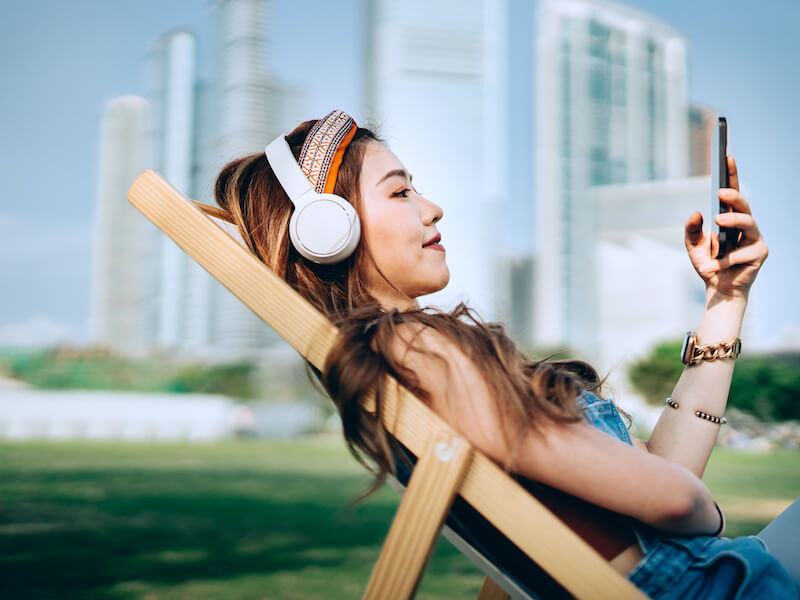
Aiden enjoys music. While he’s out running, he listens to Pandora, while working it’s Spotify, and he has a playlist for all his activities: gaming, gym time, cooking, and everything else. His entire life has a soundtrack and it’s playing on his headphones. But the exact thing that Aiden loves, the loud, immersive music, could be causing permanent damage to his hearing.
As far as your ears are concerned, there are safe ways to listen to music and unsafe ways to listen to music. But the more hazardous listening choice is frequently the one most of us use.
How can listening to music lead to hearing loss?
Your ability to hear can be compromised over time by exposure to loud noise. Normally, we think of aging as the primary cause of hearing loss, but more and more research indicates that it’s actually the accumulation of noise-induced damage that is the issue here and not anything intrinsic to the aging process.
It also turns out that younger ears are particularly vulnerable to noise-induced damage (they’re still growing, after all). And yet, the long-term harm from high volume is more likely to be dismissed by younger adults. So because of extensive high volume headphone usage, there has become an epidemic of hearing loss in young individuals.
Can you listen to music safely?
Unlimited max volume is obviously the “dangerous” way to listen to music. But simply turning the volume down is a safer way to listen. Here are a couple of general recommendations:
- For adults: 40 hours or less of weekly listening on a device and keep the volume below 80dB.
- For teens and young children: 40 hours is still fine but lower the volume to 75dB.
About five hours and forty minutes a day will give you about forty hours a week. That seems like a lot, but it can go by rather rapidly. Even still, most individuals have a fairly reliable idea of keeping track of time, it’s something we’re trained to do successfully from a really young age.
Keeping track of volume is a little less intuitive. On most smart devices, computers, and televisions, volume isn’t calculated in decibels. It’s calculated on some arbitrary scale. It could be 1-100. But maybe it’s 1-16. You may not have a clue how close to max volume you are or even what max volume on your device is.
How can you listen to music while monitoring your volume?
It’s not very easy to tell how loud 80 decibels is, but thankfully there are a few non-intrusive ways to tell how loud the volume is. It’s even more difficult to understand the difference between 80 and 75dB.
So using one of the many noise free monitoring apps is greatly advisable. These apps, generally available for both iPhone and Android devices, will provide you with8 real-time readouts on the noises around you. That way you can monitor the dB level of your music in real-time and make alterations. Your smartphone will, with the correct settings, inform you when the volume gets too loud.
As loud as a garbage disposal
Generally, 80 dB is about as noisy as your garbage disposal or your dishwasher. That’s not too loud. Your ears will start to take damage at volumes above this threshold so it’s a relevant observation.
So pay close attention and try to stay away from noise above this volume. And limit your exposure if you do listen to music over 80dB. Maybe minimize loud listening to a song rather than an album.
Listening to music at a loud volume can and will cause you to develop hearing issues over the long run. Hearing loss and tinnitus can be the outcome. Your decision making will be more informed the more mindful you are of when you’re entering the danger zone. And hopefully, those decisions lean towards safer listening.
Still have questions about keeping your ears safe? Contact us to explore more options.
